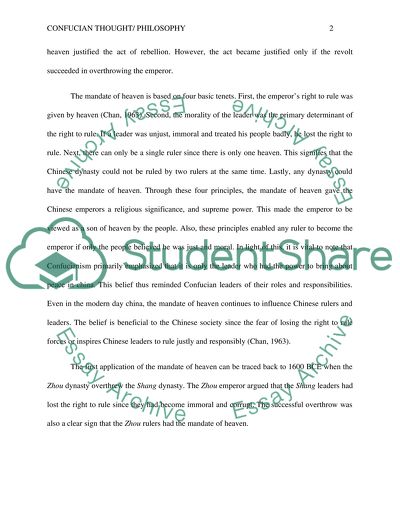Cite this document
(“Confucian Thought/ Philosophy Essay Example | Topics and Well Written Essays - 1750 words”, n.d.)
Retrieved from https://studentshare.org/philosophy/1700818-chinese-philosophy
Retrieved from https://studentshare.org/philosophy/1700818-chinese-philosophy
(Confucian Thought/ Philosophy Essay Example | Topics and Well Written Essays - 1750 Words)
https://studentshare.org/philosophy/1700818-chinese-philosophy.
https://studentshare.org/philosophy/1700818-chinese-philosophy.
“Confucian Thought/ Philosophy Essay Example | Topics and Well Written Essays - 1750 Words”, n.d. https://studentshare.org/philosophy/1700818-chinese-philosophy.


